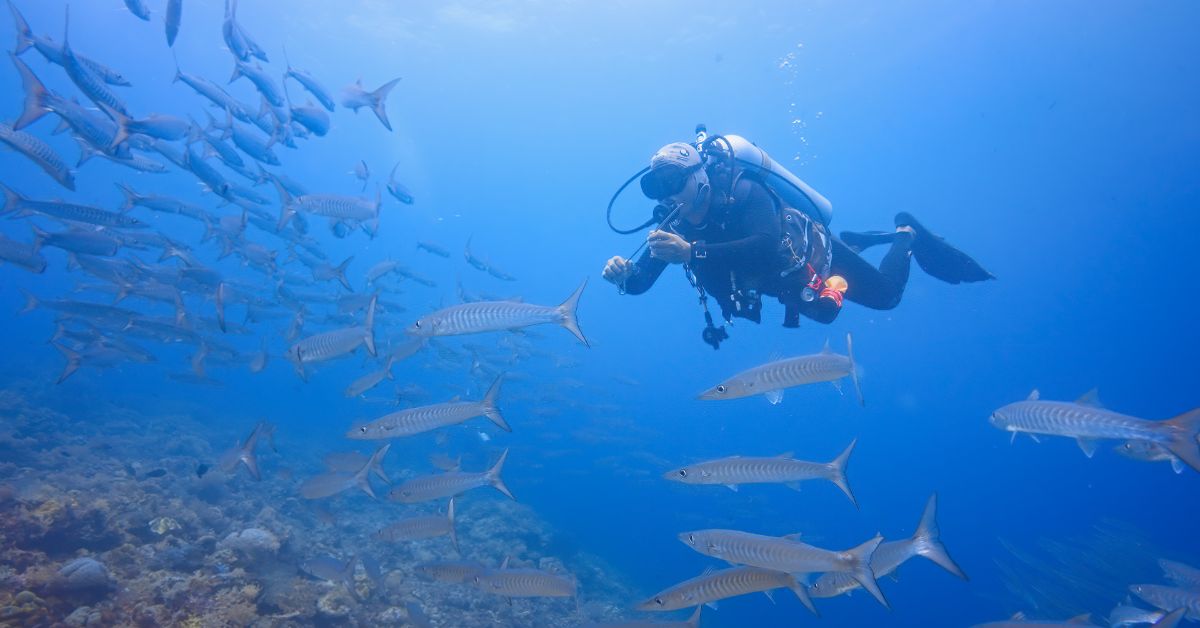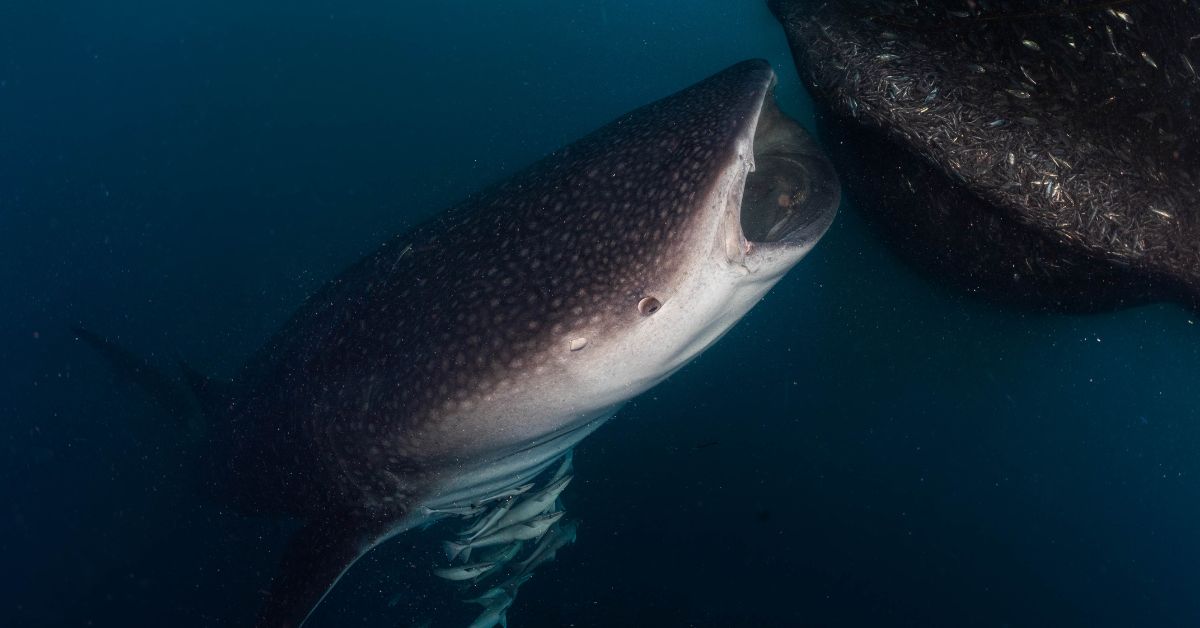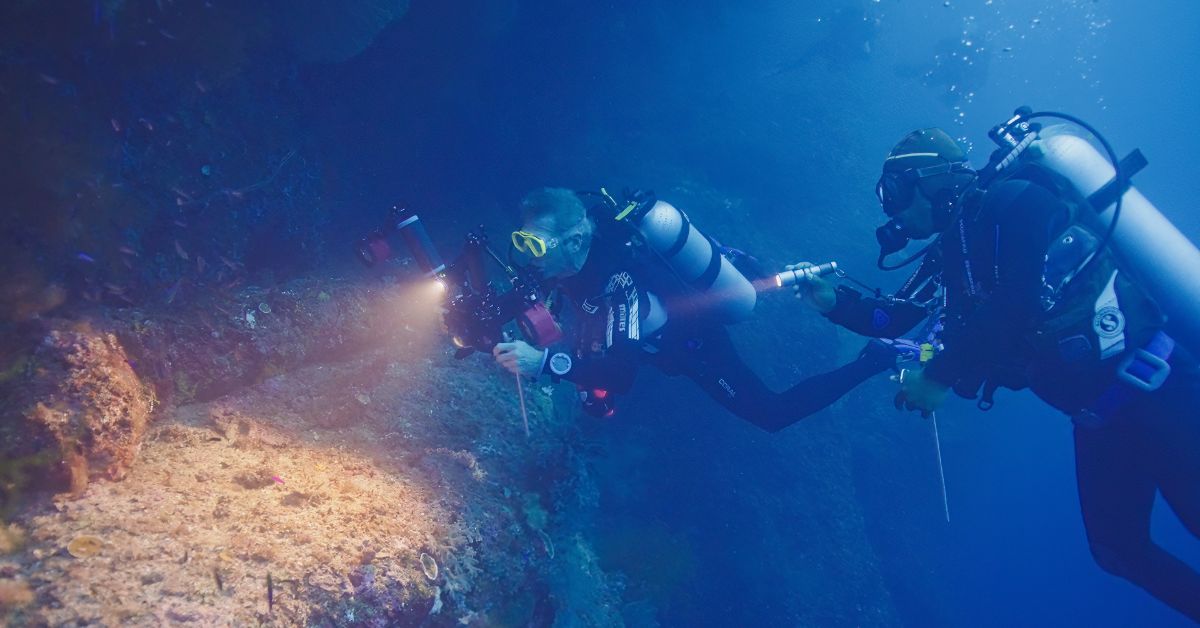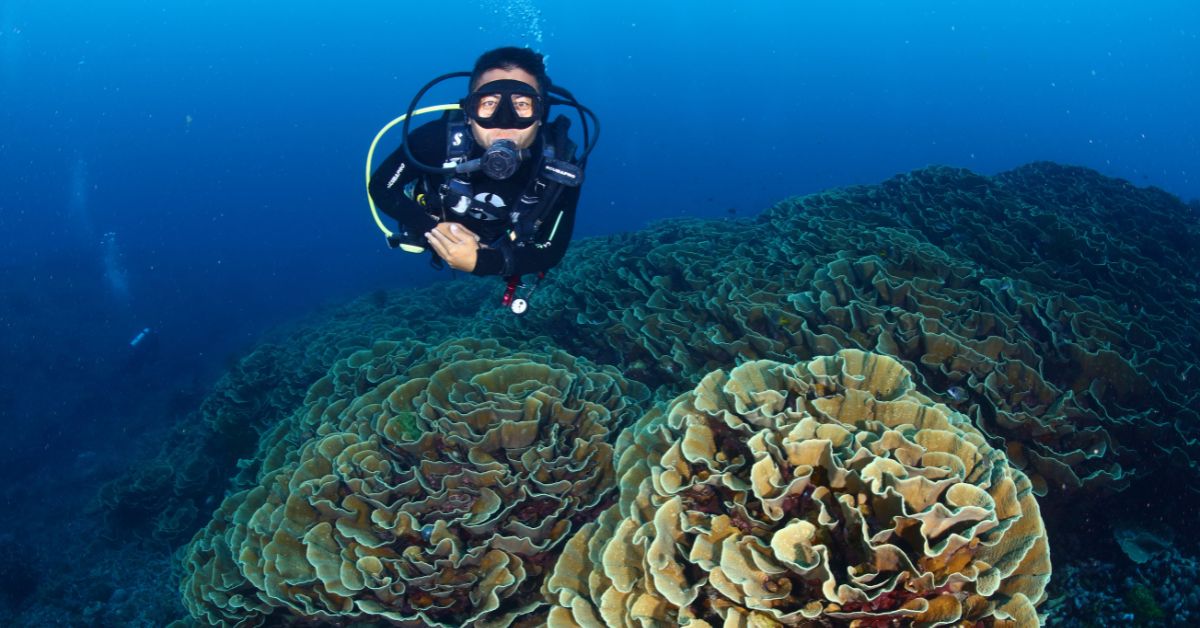Scuba diving is an exciting and adventurous activity that allows individuals to explore the wonders of the underwater world. As with many sports, following the proper safety procedures ensures you have the best time. Knowing how much air to consume throughout your journey is essential since you have a limited supply of air while scuba diving. In this brief overview of the 1/3 rule in diving, we’ll discuss this guideline, why it’s essential, and how you can dive safely.
What Is the 1/3 Rule?
Unlike on land, where you can simply take a deep breath as you need oxygen, this isn’t the case during a dive. When you explore the ocean’s depths, you’ll wear an oxygen tank to provide the air you need, but it has a limited supply. This is where the 1/3 rule comes into play.
The 1/3 rule, also called the Rule of Thirds, states that you should use one-third of your air supply to descend into the water, one-third for the actual dive, and save one-third for your ascent back to the surface. This diving rule exists to keep individuals safe and prevent them from running out of air while underwater, which can lead to serious consequences such as drowning or decompression sickness.
Diving Tip
It’s natural to feel nervous before a dive, but you have to keep your breathing steady. Taking in too much air at the start of your underwater adventure can cause you to use up your air supply too quickly.
Reasons the 1/3 Rule Is Important
Our overview of the 1/3 rule in diving would be incomplete if we didn’t highlight why this guideline is so pivotal. In addition to keeping you safe, the 1/3 rule also helps you conserve oxygen, which keeps your underwater adventure enjoyable. Below, we’ve detailed further reasons this guideline is important.
It Keeps You Safe
There’s no understating the importance of safety when scuba diving. The 1/3 rule ensures you always have enough air throughout your dive. Do your best to control how much oxygen you consume and preserve one-third for each portion of your dive.
Moreover, if you use too much of your oxygen during the descent and dive, you may not have enough to ascend safely to the surface. Running out of air at low depths can put you at risk of drowning if you’re unable to reach the surface in time.
Preventing Oxygen Toxicity
Taking in too much oxygen at once can lead to oxygen toxicity, which can cause serious symptoms, such as nausea, dizziness, numbness and tunnel vision. By following the 1/3 rule, you maintain proper oxygen consumption throughout the dive.
It Conserves Resources
During a dive, you may go several meters underwater and need to swim back up to the surface. Likewise, some dives require careful navigation as you swim around natural formations and marine life; you may also want to explore specific sites such as shipwrecks. If you use too much oxygen on your descent or during your exploration, you risk running out of air before your ascent, which can lead to dangerous situations.
It Keeps Diving Enjoyable
Following the 1/3 rule also helps keep your dive enjoyable since running out of air during a dive can be stressful and ruin the experience. By conserving your oxygen supply, you can relax and fully immerse yourself in your surroundings, taking in all the beauty that lies beneath the surface.
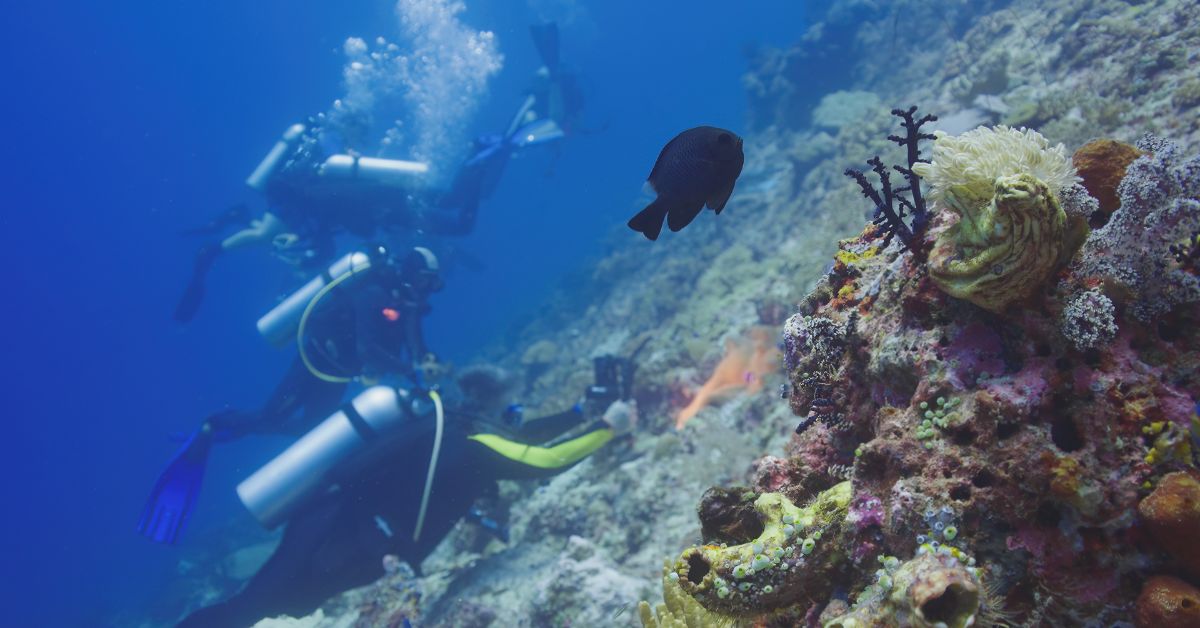
Tips for Keeping Dives Safe
Following the 1/3 rule helps keep you safe and relates to the overall importance of oxygen conservation during a dive. To keep dives safe you should:
- Ascend and descend slowly
- Never dive alone
- Know your limits
- Avoid holding your breath
- Monitor your oxygen gauge
- Practice breathing techniques
Remaining mindful of these safety tips and following the 1/3 rule will help ensure a safe and enjoyable diving experience.
Ascend and Descend Slowly
Rapid changes in depth can lead to decompression sickness, a serious condition caused by nitrogen bubbles forming in the bloodstream. To prevent this, divers should always ascend and descend at a slow, controlled pace. You can maintain this steady pace and avoid sudden depth changes by regularly monitoring your depth gauge.
In addition to using a depth gauge, divers should make safety stops during their ascent. A typical safety stop involves pausing at 15 feet for three minutes. This allows excess nitrogen to safely dissipate from the body.
Diving Tip
As you descend and assent, keep your breathing steady and avoid holding your breath or hyperventilating.
Never Dive Alone
Diving with a buddy is not only more fun but also safer. In an emergency, your diving companion can assist you and call for help if needed. Establishing a plan with your buddy before the dive is important, including hand signals and emergency procedures. For example, you should have a specific hand gesture for what you’ll do if one of you runs low on oxygen.
Know Your Limits
The ocean can be a mesmerizing yet unpredictable environment, and divers need to know their limits. This includes being aware of their physical abilities, any medical conditions they may have, and the depth at which they feel comfortable diving. Never push yourself beyond what feels safe and comfortable.
Monitor Your Oxygen Gauge
Monitor your oxygen gauge throughout your dive to ensure you follow the 1/3 rule. If you notice you are using up more air than anticipated, signal to your diving partner and begin your ascent to the surface.
Avoid Holding Your Breath
Holding your breath while ascending can lead to lung overexpansion injuries, which are potentially fatal. Divers should practice continuous, controlled breathing throughout the ascent. This habit helps ensure the lungs remain at a consistent pressure, preventing dangerous air expansion.
Controlled breathing means taking slow, deep breaths and fully exhaling. This technique helps maintain optimal buoyancy and reduces the risk of accidental breath-holding. Divers should maintain a calm, rhythmic breathing pattern, especially during their ascent.
Practice Breathing Techniques
Effective breathing techniques can enhance safety and comfort during a dive. Slow, deep breaths help regulate buoyancy and reduce air consumption. Practicing breathing techniques such as diaphragmatic breathing exercises on land can help divers become more comfortable and improve their breathing control while underwater.
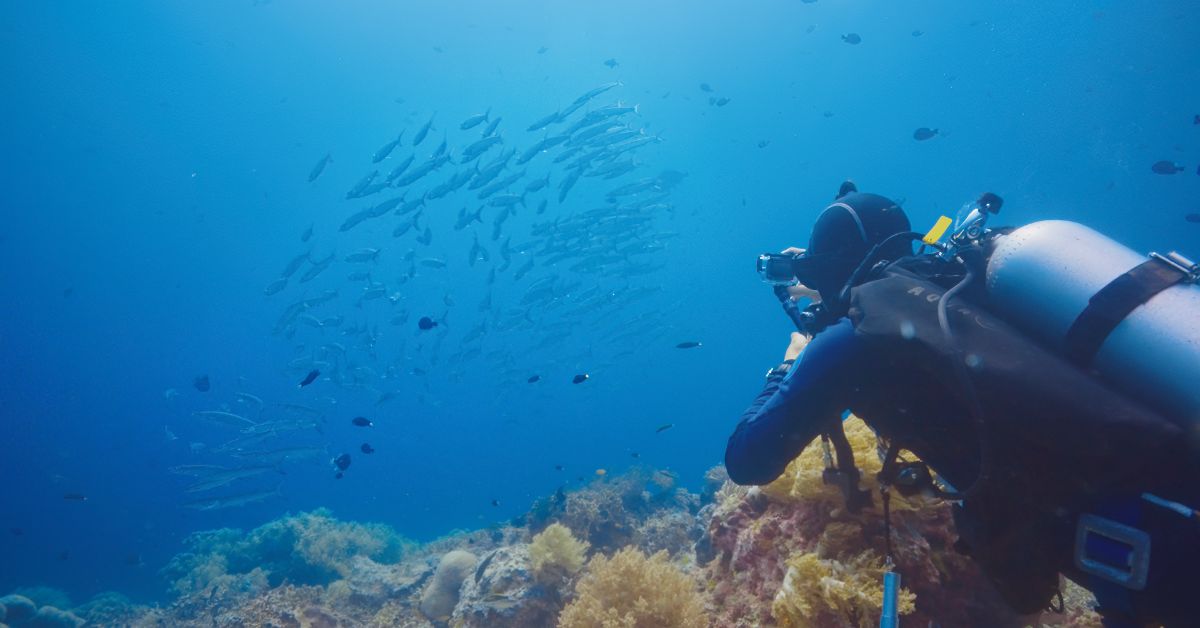
Plan Your Diving Adventure
When you plan your adventure with Dewi Nusantara, you’ll enjoy a luxury trip as you explore beautiful dive sites in Indonesia, including Triton Bay diving. Plan your one-of-a-kind diving adventure to experience the beauty of the ocean.


